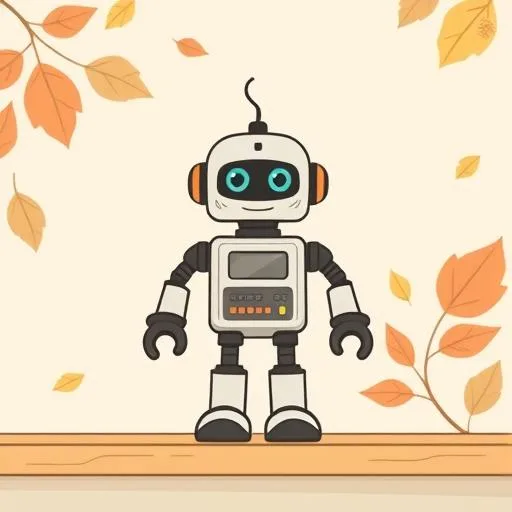
Have you ever found a beloved old toy, maybe one from your own childhood, and tried to give it a fresh coat of paint? It looks shiny and new for a moment, but the squeaky wheel and the wobbly leg are still there. That’s EXACTLY what I thought of when I heard Google is bringing its powerful Gemini model to its Nest smart speakers. It’s a brilliant new brain, a vibrant splash of paint! But it makes you wonder—can a software miracle truly revive a device whose hardware hasn’t been updated in years? It’s a question that gets my mind buzzing, not just about gadgets, but about what we choose to bring into our homes and our kids’ lives.
The Echo in the Room: A Tale of Two Gadgets

Let’s be real, it’s been a minute since our smart speakers felt, well, truly smart. It’s that feeling when you ask it to play your daughter’s favorite sing-along tune for the tenth time, and it replies with something completely random. You can’t help but chuckle! It turns out, we weren’t just imagining it. The research confirms that Google Assistant’s performance has been on a nosedive, often mishearing commands or getting confused. It’s like a friend who’s gotten a bit hard of hearing over the years. We’ve been patient, but it’s been tough watching Amazon’s Echo lineup seemingly lap Google with newer, better hardware.
Now, Gemini is stepping onto the scene, promising to be a game-changer! And that’s INCREDIBLY exciting! The idea is that since the heavy lifting happens in the cloud, even older devices can get this massive intelligence boost. But here’s the kicker: the Nest Mini, that little fabric puck in so many of our homes, hasn’t had a hardware refresh since 2019! Think about that! My daughter was barely a toddler then. The world has changed, she’s changed, but the two tiny microphones inside that speaker are still the same. As one report from Android Authority points out, no amount of software wizardry can fully overcome old hardware limits. It’s a powerful reminder that the tools we use are a partnership between the physical and the digital.
More Than a Gadget: A Lesson in Lasting Value

This whole situation is such fantastic food for thought. It’s not about Google versus Amazon. It’s about a deeper principle that we can share with our kids. We live in a world that’s constantly screaming about the next big software update, the latest feature, the newest download. But this story of Gemini and the Nest speakers is a beautiful, tangible example of how the foundation—the hardware, the body, the core—matters just as much. You can’t just patch your way to greatness forever!
It’s like building with LEGOs. You can have the most imaginative, brilliant blueprint (the software), but if your bricks are worn, cracked, and won’t stick together properly (the hardware), the masterpiece you envision just won’t hold up. It’s a lesson in substance over flash. Are we teaching our kids to value things that are built to last, that are cared for and thoughtfully designed from the ground up? Or are we encouraging a throwaway culture where we just slap on a digital band-aid and hope for the best? Seeing this play out with a simple home gadget is a powerful, everyday teaching moment. It warms my heart to think we can use these little things to spark BIG conversations about what truly has value.
The Spark of Connection is the REAL Smart Tech

So, what do we do? Do we worry that our smart home is doomed, as some articles from places like Android Central hint might happen? HECK NO! We embrace the opportunity! This is where the magic really happens, and it’s a thousand times more exciting than any tech update. We get to decide what role these tools play in our family’s story.
What if, instead of just being passive users, we become active explorers? Why not turn the speaker’s occasional glitch into a family game? Let’s invent the silliest, most complicated questions we can think of and see how Gemini handles them on the old hardware. Who can stump the speaker first? This transforms a potential frustration into a moment of shared laughter and connection. It teaches resilience, creativity, and the awesome power of not taking things too seriously. It shifts the focus from the device’s perfection to our family’s interaction.
Building a Future-Ready Home, Heart First

As I reflect on this, it’s clear that clarity isn’t always about perfect function—it’s about intention. The debate over Gemini and Nest hardware isn’t really about which speaker wins. It’s about us, as parents, navigating a world of constant change with intention and joy. It’s about building a home that’s “smart” because it’s filled with curiosity, not just connected devices.
Maybe the best “smart home” isn’t one where every command is heard perfectly, but one where technology serves as a launchpad for imagination. Where a fuzzy answer from a speaker leads to pulling out a real book to find the right answer together. Where a song request that goes wrong leads to us making up our own silly song instead. The promise of a brilliant new intelligence like Gemini is thrilling, but let’s not forget that the most powerful, adaptable, and creative processors are already sitting around our dinner table. Let’s invest in those first. The future isn’t about having the perfect gadget; it’s about raising kids who know how to connect, create, and find joy, no matter what tools they have in their hands. And that is something to be absolutely, positively, ENERGETICALLY excited about!
Source: Gemini for Home isn’t enough to revive Google’s forgotten Nest speakers, Android Authority, 2025/09/06 12:00:25
